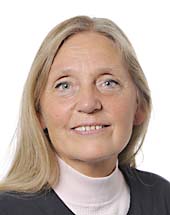
Choisissez la langue de votre document :
- bg - български
- es - español
- cs - čeština
- da - dansk
- de - Deutsch
- et - eesti keel
- el - ελληνικά
- en - English
- fr - français
- ga - Gaeilge
- hr - hrvatski
- it - italiano
- lv - latviešu valoda
- lt - lietuvių kalba
- hu - magyar
- mt - Malti
- nl - Nederlands
- pl - polski
- pt - português
- ro - română
- sk - slovenčina
- sl - slovenščina
- fi - suomi
- sv - svenska
|
| Procédure : 2012/0179(COD) |
| Cycles relatifs aux documents : | ||||||
Textes déposés : A7-0395/2013 | Débats : PV 09/12/2013 - 19CRE 09/12/2013 - 19 | Votes : PV 10/12/2013 - 7.21CRE 10/12/2013 - 7.21 Explications de votes | Textes adoptés : P7_TA(2013)0539 | |||
| Compte rendu in extenso des débats | |
| Lundi 9 décembre 2013 - Strasbourg | Edition révisée |
|
| Avis juridique - Politique de confidentialité |
































